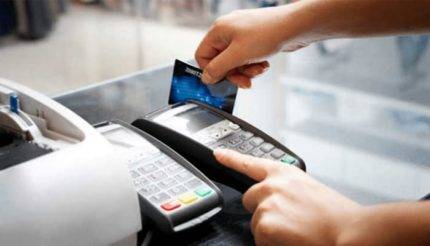The surge in electronic payment transactions in Nigeria has reached unprecedented heights, with the total volume surpassing a staggering N600 trillion in 2023. This remarkable milestone reflects a significant shift towards cashless payment methods among Nigerians, driven by the convenience and efficiency offered by digital transactions.
Data released by the Nigeria Inter-Bank Settlement System (NIBSS) indicates a remarkable 55% increase in the value of electronics payments transactions processed through the NIBSS Instant Payment (NIP) platform compared to the previous year, with transactions totaling N600 trillion in 2023, up from N387 trillion in 2022. This exponential growth underscores the growing acceptance and adoption of electronic payments across the country.
The consistent growth in electronics payment transactions throughout the year underscores the changing landscape of financial transactions in Nigeria. Notably, the month of December emerged as a standout period, with electronic payments transactions peaking at N71.9 trillion. This surge in December reflects increased consumer spending during the festive season, further reinforcing the pivotal role of electronic payments in facilitating seamless transactions during peak periods.

March 2023 Marks Historic Milestone with 1.1 Billion Electronic Transactions
March 2023 witnessed a historic milestone in Nigeria’s electronic payment landscape, with the volume of transactions reaching an all-time high of 1.1 billion transactions. This surge in electronic payments coincided with a period of cash scarcity in Nigeria, compelling individuals and businesses alike to rely on electronic channels for their financial transactions. The unprecedented volume of transactions in March underscores the resilience and adaptability of Nigerians in embracing digital payment solutions amidst challenging economic conditions.
While March witnessed a record-breaking number of transactions, it is noteworthy that the total value of transactions did not surpass the peak recorded in December of the same year. This indicates a nuanced trend in electronic payment dynamics, with varying transaction volumes and values influenced by seasonal factors and economic circumstances. Nonetheless, the sustained growth in electronic payments reflects a fundamental shift towards a cashless economy in Nigeria, with digital transactions becoming increasingly ingrained in everyday financial activities.
Nigeria Witnesses Surge in Cashless Transactions, but Challenges Loom Ahead
In recent years, Nigeria has been experiencing a notable shift towards electronic payment methods, marking a significant milestone in the country’s financial landscape. This transition has led to a commendable increase in the value of transactions processed through the Nigeria Inter-Bank Settlement System (NIBSS), reflecting a positive trajectory towards a more digital economy. However, amidst these achievements, various challenges have surfaced, posing hurdles to the seamless integration of cashless systems and hindering optimal financial inclusion.

Rapid Growth in electronic payments Transactions
The adoption of cashless payment methods in Nigeria has seen remarkable progress, with data from the Nigeria Inter-Bank Settlement System (NIBSS) showcasing a substantial surge in the value of transactions processed through electronic channels. This trend not only highlights a shift in consumer behavior but also underscores the increasing reliance on digital financial services. With the convenience and efficiency offered by cashless transactions, businesses and individuals are embracing electronic payment options, contributing to the overall growth of the economy.
Challenges Impeding Cashless Adoption
Despite the promising growth in cashless transactions, Nigeria grapples with a myriad of challenges that hinder the seamless adoption and integration of digital payment systems. One notable obstacle is the weak risk management framework, which exposes both financial institutions and consumers to potential security threats and fraudulent activities. Moreover, security concerns remain a prevalent issue, deterring some consumers from fully embracing cashless transactions due to fears of data breaches and cyberattacks.
Additionally, resistance from target customers presents another hurdle, as certain demographics remain apprehensive about transitioning to digital payment methods, citing concerns over reliability and accessibility. Furthermore, the absence of a unique identifier for customers across different financial institutions poses logistical challenges and complicates the interoperability of digital platforms. High operational costs associated with maintaining cashless infrastructure further exacerbate the situation, limiting the affordability and scalability of electronic payment systems.

In addressing these challenges, stakeholders must prioritize enhancing risk management frameworks, bolstering cybersecurity measures, and implementing strategies to promote consumer trust and confidence in digital payment platforms. Moreover, efforts to streamline interoperability, reduce operational costs, and ensure transparent pricing are crucial for fostering a conducive environment for the widespread adoption of cashless transactions in Nigeria. By tackling these obstacles head-on, Nigeria can unlock the full potential of its digital economy and propel sustainable growth and development for the benefit of all citizens.
Table of Contents
Discover more from OGM News NG
Subscribe to get the latest posts sent to your email.













